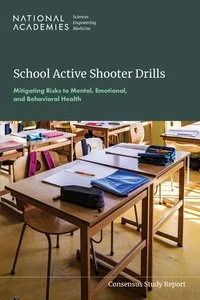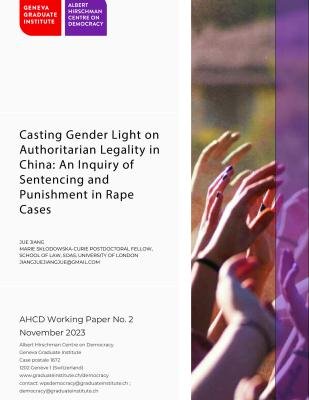By Richard J. Bonnie and Rebekah Hutton, Editors
Active shooter drills have become a standard practice in nearly all U.S. schools, yet their potential impact on students and educators has received limited attention. School Active Shooter Drills: Mitigating Risks to Mental, Emotional, and Behavioral Health explores how these drills are conducted and how to reduce potential harm while supporting school safety. Developed by a committee of experts in education, school safety, public health, pediatrics, child and adolescent development, psychiatry, psychology, neuroscience, public policy, and criminology, this report provides an in-depth review of current practices and offers guidance. The report provides suggestions for implementing practices that promote prevention and preparedness while supporting well-being, and foster learning environments where students and staff feel safe, capable, and supported.
School Active Shooter Drills finds that while drills aim to enhance preparedness, they often vary dramatically in intensity and design, from simple safety walk-throughs to unannounced, high-simulation events. Such inconsistencies can heighten anxiety, distress, and confusion, especially among vulnerable student populations. The report underscores that developmentally appropriate, trauma-informed practices are essential, and drills involving realistic simulations or deception should be avoided entirely.
School Active Shooter Drills outlines actionable recommendations for state and local policymakers, school leaders, researchers, and federal agencies, including banning harmful practices, supporting staff training, ensuring equitable inclusion, and increasing access to mental health resources. This report also calls for national guidance and sustained research to strengthen the evidence base and help schools foster safe, inclusive, and supportive learning environments so that schools not only prepare students and staff for emergencies but also protect their mental, emotional, and behavioral well-being.
National Academies of Sciences, Engineering, and Medicine; Division of Behavioral and Social Sciences and Education; Board on Children, Youth, and Families; Committee on Law and Justice; Committee on the Impact of Active Shooter Drills on Student Health and Wellbeing. 2025. p253.




